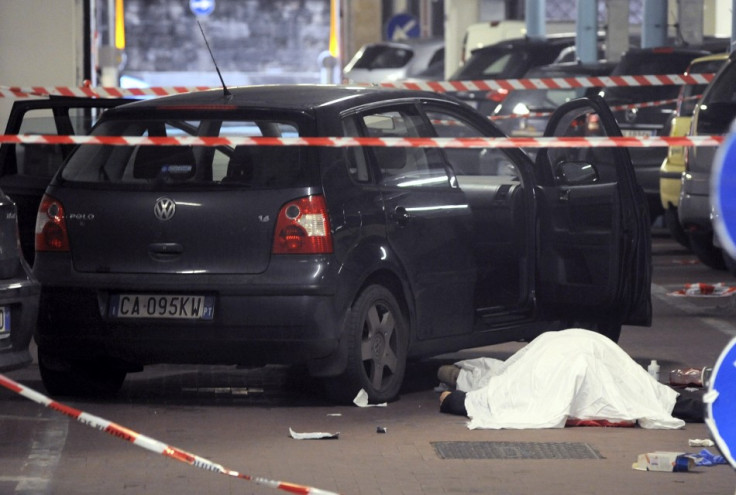The Far Right Link Between Norwegian Killer Breivik and Florence Gunman Casseri

Florence far-right gunman Gianluca Casseri, who shot dead two Africans Tuesday and Norwegian mass killer Anders Behring Breivik may have more in common than expected, experts on far-right movements point out.
Described as an expert on right-wing European culture, the 50-year-old alleged member of far-right Casas Pound movement was also passionate about fantasy and conspiracy books. Its literary magazine La Soglia or The Threshold included monographic issues about Dracula, the author of The Lord of the Rings J.R. Tolkien, and H.P. Lovecraft.
This long-time engagement with fantasy genre is shared by Breivik, who killed 77 people in a twin attack in Oslo. "Breivik's manifesto shows a fascination and an obsession with the fantasy genre, especially with Tolkien and Lovecraft," Matthew Goodwin, experts on far-right extremism, told the International Business Times UK.
"It's part of a wider discourse. Far-right movements are obsessed with narratives that put emphasis on apocalyptic scenario, in which they portray themselves as heroes."
Goodwin points out that Florence shooting was less meditated than Norway's one. Nonetheless, it reflects the same view of European far-right movements, a strategy of "taking action" caused by the lack of success at the ballot. "Breivik's plan was more sophisticated on arguing that politicians were to blame for the rise of multiculturalism in Europe," he said. "Florence shooter took direct action towards immigrants."
The Florence racist shooting also reflects "the neglected challenge of far right violence", according to Goodwin.
"It's interesting to notice that Florence shooting took place the same day as Belgium one, but it did not rise the same attention from the media," he argues. Before Norway, there was a tendency among European politicians to downplay far-right violence because it does not fit in focus with Al Qaeda and the anti-Islamist narrative post 9/11.
"After Norway it seemed that something was changing, but the BBC took seven hours to report on Florence," explains Goodwin. "Far-right violence is not perceived as a challenge, also because there are fewer cases. But the number of warning is increasing."
Far-right movements have two faces nowadays, claims Goodwin. The more traditional one is still anti-Semitic and plots against Jews, as the news of the neo-Nazi cell unravelled in Rome today witnesses. "The most successful, instead, seeks closer links with Israel against the threat of Islam," said Goodwin. A member of the French's National Front, for instance, is visiting Israel these days to recruit supporters, and persuade those eligible to vote in the presidential election next year that the party has cut out its roots in French anti-Semitism.
© Copyright IBTimes 2024. All rights reserved.







